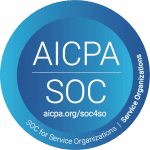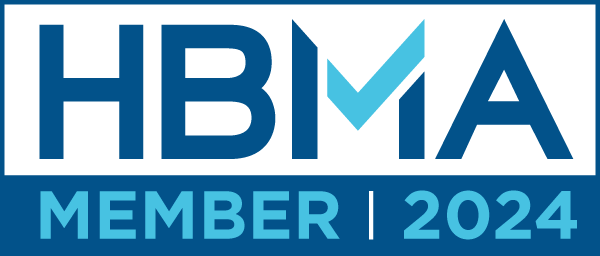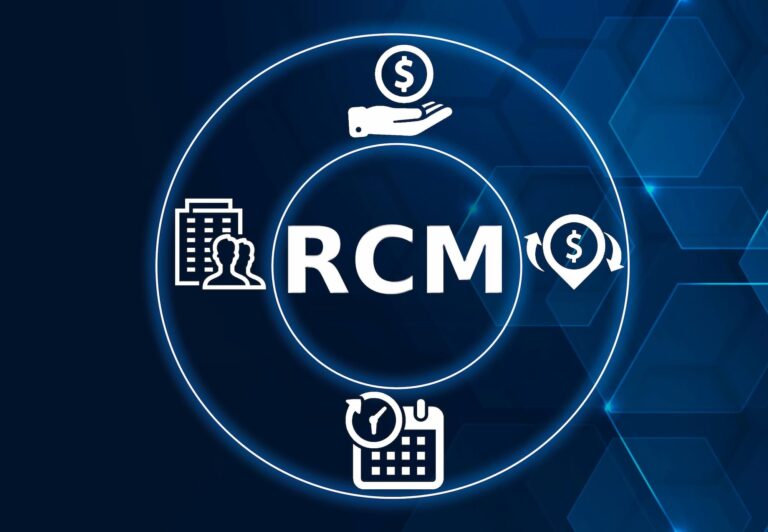
Read the latest trends, challenges and advances in medical billing. PHIMED will continue to bring our leaders insights in these informative Q&A sessions.

Vol 19
Interview:
Ashley Kilmartin
Director of Strategic Partnerships
Q&A Interview: Embracing Outsourcing for Enhanced RCM Efficiency
As healthcare continues to navigate the complexities of modern medical practices, the trend towards outsourcing Revenue Cycle Management (RCM) is gaining momentum. In 2025, more healthcare organizations are expected to turn to specialized firms to manage their RCM, driven by the need for efficiency, cost reduction, and enhanced financial performance.

Vol 18
Interview:
Ashley Kilmartin
Director of Strategic Partnerships
Year in Review: Major Shifts and Milestones in Medical Billing Management
PHIMED spotlights the revolutionary impact of AI and Robotic Process Automation (RPA) on medical billing. As machine learning and RPA reshape healthcare practices, we delve into how PhyGeneSys harnesses these technologies to boost efficiency, fortify data security, and customize billing interactions. Discover how these intelligent solutions are poised to transform healthcare management, offering predictive insights that anticipate and mitigate challenges before they affect revenue cycles.

Vol 17
Interview:
Ashley Kilmartin
Director of Strategic Partnerships
Navigating Rising Healthcare Costs and Claim Denials: PHIMED’s Proactive Approach
Healthcare billing is evolving, with technological advancements paving the way for more efficient practices. Despite these innovations, the challenge of claims denials remains prominent, exacerbated by increasing healthcare costs and stringent payer policies. A recent study by Experian Health has revealed a startling increase in claims denials, an issue compounded by stricter reimbursement protocols and administrative burdens. These denials not only delay payments but also strain resources, impacting both patient care and the bottom line.

Vol 16
Interview:
Ashley Kilmartin
Director of Strategic Partnerships
Innovation Strategies to Detect and Prevent Rising Medical Billing Fraud
In recent years, healthcare systems have seen a significant rise in billing fraud, posing serious financial and ethical challenges across the sector. Instances of fraudulent activity have surged, with statistics showing an alarming increase in detected cases over the last decade. This trend underscores the critical need for innovative strategies to mitigate these risks and protect the financial foundations of healthcare providers.
Download Full Q&A
Vol 15
Interview:
Ashley Kilmartin
Director of Strategic Partnerships
The Rise of Zero Trust: A Strategic Defense Against Healthcare Cyberattacks
This year has proven particularly challenging for cybersecurity in healthcare. High-profile cyberattacks on organizations like Change Healthcare, Kaiser Permanente, and Ascension have highlighted critical vulnerabilities, affecting millions of records and disrupting essential services. These incidents showcase the escalating need for robust cybersecurity frameworks to protect both operational capabilities and sensitive patient data.
Download Full Q&A
Vol 14
Interview:
Ashley Kilmartin
Director of Strategic Partnerships
Overcoming 2024’s Medical Billing Hurdles: Navigating Coding Complexities, Denials, and Compliance with Advanced Solutions
In 2024, the medical billing sector grapples with several challenges including the growing complexity of billing codes, increasing rates of claim denials, the shift towards value-based care, and stringent regulatory compliance demands. With nearly half of healthcare providers reporting a rise in denial rates due to various discrepancies, adapting billing systems for new reimbursement models and continuously updating practices for regulatory compliance is essential for maintaining efficiency and accuracy in healthcare revenue cycle management.
Download Full Q&A
Vol 13
Interview:
Ashley Kilmartin
Director of Strategic Partnerships
Enhancing Financial Health with Tech-Driven Solutions for Underpayment in Healthcare
Underpayments significantly disrupt healthcare providers’ revenue cycles and operational efficiency. They often stem from several sources such as coding mistakes, incorrect patient data, or incomplete documentation, which lead to financial discrepancies that can be both persistent and costly. By pinpointing the root causes such as coding errors—which are responsible for up to 80% of billing mistakes—we can better tailor solutions to prevent them.
Download Full Q&A
Vol 12
Interview:
Ashley Kilmartin
Director of Strategic Partnerships
Navigating the Complexities of Telemedicine in Modern Healthcare
The pandemic accelerated the adoption of telemedicine, marking an increase of over 154% in telehealth visits in just the early weeks of the pandemic, as reported by the CDC. This surge is not just a temporary shift; it represents a fundamental transformation in how healthcare services are delivered, emphasizing the need for robust digital infrastructure. Telemedicine has proven essential for providing continued medical care during crises, and its integration into daily healthcare practices is becoming increasingly crucial.
Download Full Q&A
Vol 11
Interview:
Ashley Kilmartin
Director of Strategic Partnerships
Expert Insights: Minimizing Billing Losses and Maximizing Efficiency
Practices should consider adopting integrated practice management systems that enhance data accuracy and streamline the billing cycle. For example, systems like PhyGeneSys that offer end-to-end solutions can automate many of the repetitive tasks that are prone to human error. They also facilitate better claim tracking and manage patient appointments, which are often the starting point of the billing process. Technology that offers intelligent data analysis can alert practices to common errors before they result in rejected claims.
Download Full Q&A
Vol 10
Interview:
Ashley Kilmartin
Director of Strategic Partnerships
Harnessing Automation: A Practical Approach to Medical Billing Efficiency
Healthcare management indeed involves a maze of processes where efficiency can make or break the system. Doctors in the US are losing substantial revenue due to inefficient billing – estimates suggest up to $125 billion annually. Automation is not just a solution; it’s a transformative force that refines these processes, introducing strategic advantages that enable practices to thrive. It’s about creating a synergy between technology and human expertise, enhancing accuracy and efficiency.
Download Full Q&A
Vol 9
Interview:
Ashley Kilmartin
Director of Strategic Partnerships
A Frontline Defense Against Rising Denial Rates in Medical Billings
With approximately 60% of denials stemming from front-end processes, providers should take steps to revamp their patient intake processes. This includes meticulous verification of patient information, insurance details, and benefits eligibility at the point of service.
Download Full Q&A
Vol 8
Interview:
Ashley Kilmartin
Director of Strategic Partnerships
The Informed Choice – Selecting Medical Billing Software for Today’s Healthcare Needs
Providers should look for solutions that integrate robust revenue cycle management, adhere to current regulations, and provide strong data security. It’s not enough to have advanced software; the key is in a solution that brings together technical capability with a technology company that has a comprehensive training and support program.

Vol 7
Interview:
Ashley Kilmartin
Director of Strategic Partnerships
Financial Vital Signs: Strategies for Reducing Errors and Improving Cash Flow
Key Performance Indicators (KPIs) are critical because they serve as quantifiable measures that gauge the financial health and operational success of a medical practice. They enable healthcare organizations to monitor cash flow, evaluate the efficiency of billing processes, and identify issues such as coding errors and claim denials.
Download Full Q&A
Vol 6
Interview:
Ashley Kilmartin
Director of Strategic Partnerships
The Future of Medical Billing: 2024 Trends to Boost Revenue and Compliance
In 2024, medical billing is poised for several significant changes. Firstly, advanced billing software and automation will play a pivotal role in transforming billing processes. These technologies are designed to simplify complex tasks, reduce errors, and enhance revenue collection. PhyGeneSys, our flagship solution, is at the forefront of this trend, empowering healthcare providers to streamline their revenue cycle management for increased efficiency and accuracy.

Vol 5
Interview:
Ashley Kilmartin
Director of Strategic Partnerships
From Data to Dollars: How Technology Secures Revenue Integrity in Healthcare
Revenue integrity ensures that healthcare providers are accurately reimbursed for the services they render. This accuracy directly impacts the financial health of the organization. By capturing all services provided, minimizing errors, and streamlining the billing and claims process, revenue integrity ensures that providers receive the revenue they are owed in a timely manner.
Download Full Q&A
Vol 4
Interview:
Ashley Kilmartin
Director of Strategic Partnerships
Revenue Cycle Management in Healthcare: Strategies for Improvement
Revenue cycle management is the lifeblood of any healthcare organization. It encompasses everything from patient registration and billing to claims processing and payment collection. Accurate and efficient management is essential to ensure that healthcare providers receive proper compensation for the services they provide.

Vol 3
Interview:
Ashley Kilmartin
Director of Strategic Partnerships
Navigating Denial Management Challenges: Innovative Approaches for Healthcare Providers
Denial management is a complex arena. Healthcare providers grapple with coding errors, documentation discrepancies, and evolving payer regulations. Manual appeal processes, data silos, and lack of predictive insights all contribute to delayed and inefficient denial resolution.

Vol 2
Interview:
Ashley Kilmartin
Director of Strategic Partnerships
The Impact of Ransomware Attacks and Data Security Breaches on the Healthcare Industry
Ransomware attacks and data security breaches pose a significant threat to the healthcare industry. The impact can be severe, both in terms of financial losses and patient safety. Ransomware attacks can result in the encryption and potential loss of sensitive patient data, leading to operational disruptions, compromised patient care, and financial implications due to potential regulatory fines and legal actions.
Download Full Q&A
Vol 1
Interview:
Hal Fulgham
President and CEO
Major Challenges in Healthcare Billing Today, and How Automation Is Addressing These Challenges
Healthcare billing faces several significant challenges, such as increasing administrative burdens, rising healthcare costs, complex billing codes, and frequent changes in regulations. These challenges can lead to errors, denied claims, revenue leakage, and delays in reimbursement. Automation plays a crucial role in addressing these challenges.
Download Full Q&A








